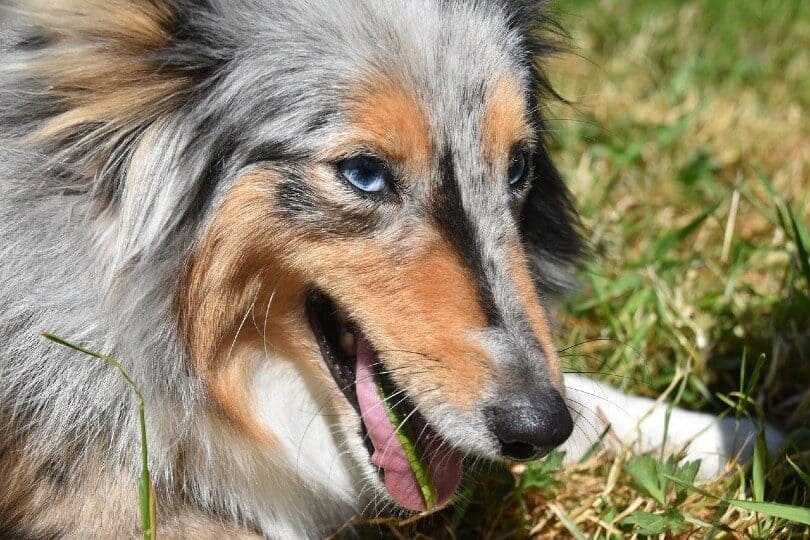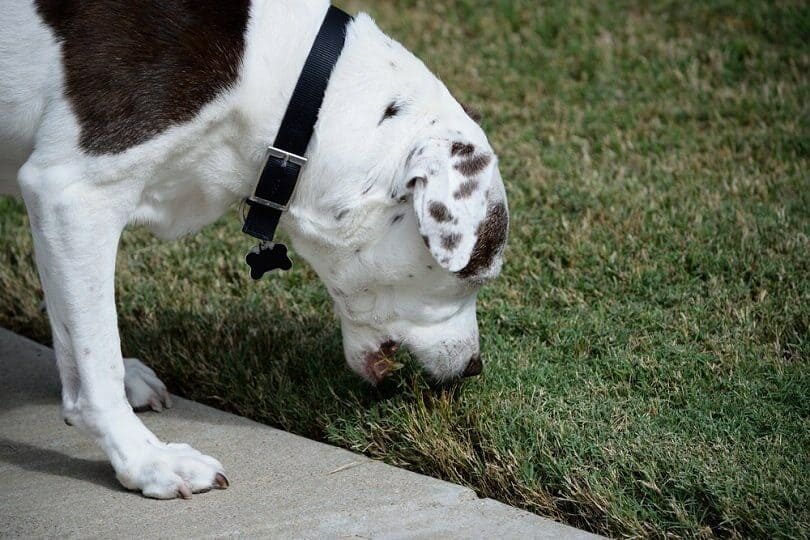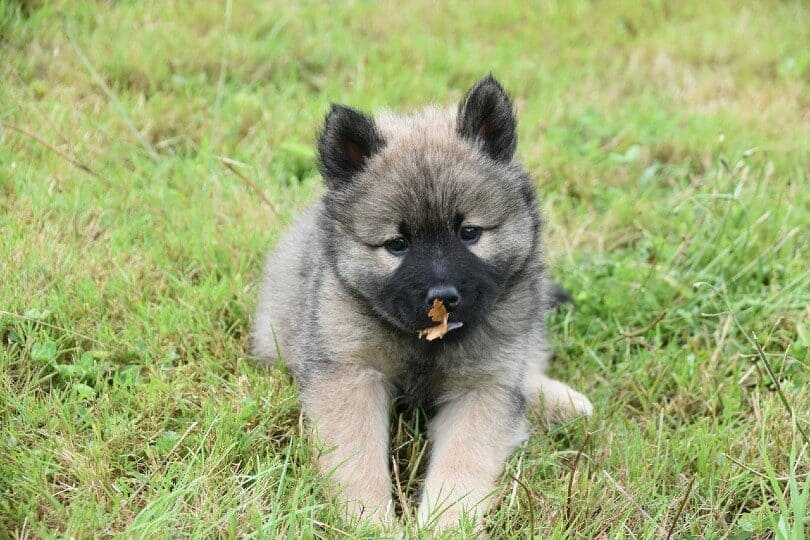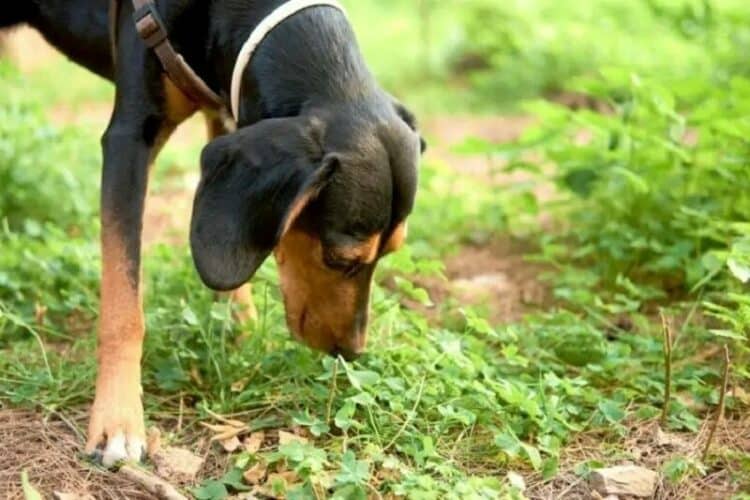It’s not unusual to see your dog eating grass, but the causes for this behavior can vary. It may be that today’s dogs have inherited the tendency to nibble on greenery from their wild ancestors, as wild dogs exhibit the same behavior. As for other potential causes, there are a few ideas and study-backed theories as to why dogs eat grass. In this post, we’ll take a closer look at the potential reasons behind your dog’s grass-eating habit.
The 4 Main Reasons Dogs Eat Grass
1. Natural Behavior
It seems likely that eating grass is simply a natural and instinctive canine behavior. Dogs are able to ingest and tolerate both plant matter and meat, and wild dogs eat whatever is available and nutritious enough to help them survive—this includes plant matter found in their prey’s stomach which provides a fiber boost. According to VCA Hospitals, 11%–47% of wolves eat grass, as shown by an examination of stool samples.
Though dogs have an easier time of it today with the availability of commercial, nutritionally complete foods, their natural instincts are still very much present, which is likely why it’s not uncommon for dogs to eat grass from time to time.

2. Health Reasons
Many people believe that dogs eat grass to ease discomfort and make themselves vomit. However, according to research, while some dogs do vomit after eating grass, it’s not as common as many people think. The results of one study showed that only 8% of dogs showed signs of being unwell prior to eating plants, and only 22% actually vomit after eating plants.
Other theories point to dogs potentially eating grass for dietary reasons, like to get a fiber boost. It has also been suggested that dogs eat grass to aid the digestive process and help get rid of intestinal parasites.
That said, it’s also possible for your dog to ingest parasites by eating grass, so be sure to keep up with their parasite prevention treatment schedule. It’s also crucial to be aware of any chemicals or pesticides you’re using on your lawn that could be harmful if ingested by your dog.

3. Boredom or Anxiety
If your dog isn’t getting enough exercise or isn’t being mentally stimulated enough, they may act out and chew on things to entertain themselves. Likewise, repetitive or compulsive behavior is a common symptom of anxiety in dogs. Try keeping your dog physically and mentally active with enough daily walks, toys, and play sessions to help them release their energy in a positive way.
If your dog is showing symptoms of anxiety, like compulsive grass-eating, or is displaying other symptoms of illness like frequent episodes of vomiting, please consult your vet to get to the bottom of what’s going on.

4. Enjoyment
It’s possible that dogs that like to eat grass have simply developed a taste for it! It’s perfectly possible that your dog likes the crunchiness of grass—similar to how humans enjoy salad—and the taste of it. If you spot your dog targeting lush, new grass, in particular, it may be that they’re simply enjoying a little spring-time graze on nature’s fresh offerings.
Conclusion
According to a variety of studies, it seems that, by and large, dogs eating grass now and then is just a natural thing for them. What isn’t normal is if your dog compulsively eats grass, displays other strange behaviors simultaneously, or is showing symptoms of a physical condition.
If, at any point, you’re concerned about your dog’s cow-like tendencies, speak to your vet. Your dog may need a change of diet, have a health condition that needs addressing, or have a behavioral issue caused by stress, anxiety, or boredom.
Featured Image Credit: Wirestock Images, Shutterstock
















